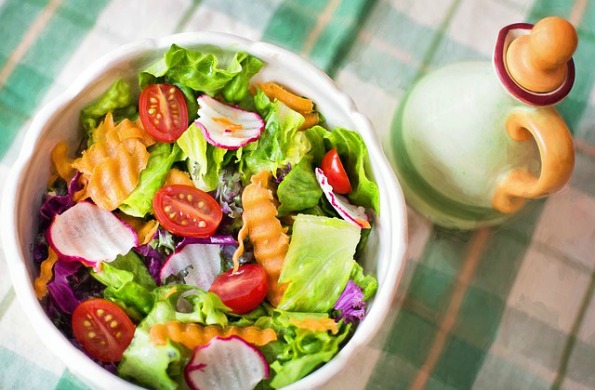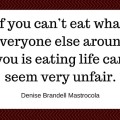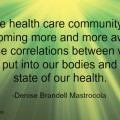**Disclaimer** While the word of wisdom gives us basic guidelines for health, it leaves the interpretation of those guideline up to the individual members. This blog is not intended to replace your medical professional or the divine revelation of the Word of Wisdom, but rather it is practical knowledge that I have accumulated over the years in my own pursuit of a healthier lifestyle which I am passing along in the hopes that it will benefit others.**
There was a time when people could realistically get everything their bodies needed from their food, however if you are eating today’s modern diet that may be difficult to accomplish.
If you are serious about improving your health, however, then the obvious first step is to shape up your diet. Weed out the junk foods that do absolutely nothing to boost nutrition, and which have many detrimental effects on your short and long term health. You know what I mean. Get rid of the soda pop, store bought cookies, toaster pastries, chips, etc., and fast foods from your favorite drive through.
Then eliminate as many prepackaged foods as possible, substituting them with fresh whole foods and preparing them for yourselves. These changes alone will go a long way toward improving our health, and should be started without delay, but will it be enough?
Foods have Changed
 Many of the whole foods that we eat today are different from the ones that our grandparents grew up with. They are lacking the full spectrum of nutrients that nature gave them. One reason for this is because the fields have been sprayed with pesticides for too many years, causing them to become toxic to normal living things. Another reason is that for too many years farmers have been specializing in only one or two crops to increase their yield, and the idea of crop rotation has become a thing of the past.
Many of the whole foods that we eat today are different from the ones that our grandparents grew up with. They are lacking the full spectrum of nutrients that nature gave them. One reason for this is because the fields have been sprayed with pesticides for too many years, causing them to become toxic to normal living things. Another reason is that for too many years farmers have been specializing in only one or two crops to increase their yield, and the idea of crop rotation has become a thing of the past.
Planting the same crops in the same fields year after year has further depleted the nutrients from the earth making it impossible to grow nutrient rich foods. But instead of returning to older ways that worked, scientists decided to begin genetically engineering the plants that grow our food to produce super plants that would theoretically produce more and better food.
Unfortunately better food was not what came of the experiment. But instead of admitting that they made a mistake, scientists and food manufacturers alike have been doing their best to slip these foods into our grocery carts through deceitful labeling and advertising practices.
I tried to sound the alarm early on when I heard about GMO products making their way into grocery stores back in the 90s. Just as I had tried, a few years earlier, to alert my friends and acquaintances to the dangers of Trans Fats. Sadly I was shouted down every time by the louder voices around me because I was going against the supposed “evidence” that was being promoted by the media that praised these products and encouraged their use.
It saddened me that I was unable to reach these people and help them to see what they were doing to their bodies and to the health of their children, but it didn’t stop me from learning all that I could about these substances so that I could attempt to protect my own family. Slowly over time the truth about these farming practices has been surfacing, proving what many of us have suspected all along, that tampering with nature is a sure path to disaster.
Research
We as consumers are bombarded daily by the media through paid advertising. But I wanted both sides of the story so I researched continually. In addition to internet searches, and a great deal of reading I have spoken to Chiropractors, Naturopaths, and other alternative medical practitioners as well as the owners of health food stores in our area to get the other side of the story.
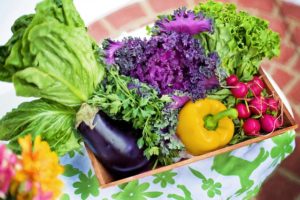 Each year I’ve delved deeper into the labyrinth of underhanded, downright deceptive labeling and advertising and asked myself this question. If these foods are as good for us as they are claiming they are, why do they need to sneak them into our foods? Why not plaster across the box in bright red letters GMO! I mean if they are as great as they tell us they are; wouldn’t they want us to know the product contained them?
Each year I’ve delved deeper into the labyrinth of underhanded, downright deceptive labeling and advertising and asked myself this question. If these foods are as good for us as they are claiming they are, why do they need to sneak them into our foods? Why not plaster across the box in bright red letters GMO! I mean if they are as great as they tell us they are; wouldn’t they want us to know the product contained them?
But the truth is the manufacturers of these chemical laden foods have gone to great lengths in lobbying the government to get loopholes in the labeling laws that will allow them to avoid, for the most part, having to admit that their foods have been genetically modified, and that those chemically produced foods are having an adverse effect on the health of our population. Slowly the changes are coming as more consumers are beginning to understand what is at stake, and they begin taking responsibility for their health and well-being, but it is an up hill battle.
Whatever the rationale behind the manufacturer’s actions, there is only one way for people to be sure that these experimental foods do not find their way onto their family’s plates. People must commit to buying Certified GMO Free and Organic foods. Fortunately these cleaner, safer foods are becoming easier to find and to identify.
Plant a Garden
Another option that you can take advantage of as we enter the summer months is to grow some of your own food in a garden plot or in patio pots. For this to be effective however you must buy Organic Seeds, otherwise you are just growing your own GMOs.
The standard variety of seeds available at most garden centers and department stores are just as likely to be a GMO variety as not. If it is not labeled otherwise you will not know what you are getting. But Organic seed varieties are becoming easier to find, you just need to read the labels. If you can’t find a store in your area that carries them do an internet search, there are seed companies that you can order from on line that specialize in Organic seeds.
I am fortunate that I live only about 40 minutes from The Rodale Institute, the publishers of Organic Gardening Magazine, where they have been Organic pioneers since 1947. Through this amazing facility I have access to organic produce, educational literature and other goods and services. The good news is that information on the benefits of organic foods, organic farming methods, and Organic seeds are becoming easier to find, and a little research will put you closer to what you are looking for.
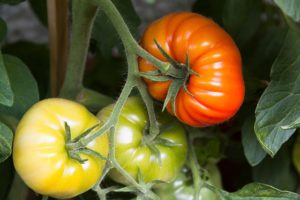 So whether you have a large yard, and you can use part of it to grow wholesome foods for your family, or if the best you have is a patio you can still do something toward better nutrition.
So whether you have a large yard, and you can use part of it to grow wholesome foods for your family, or if the best you have is a patio you can still do something toward better nutrition.
That having been said, if you live in the north as I do you’re options are already a bit limited as the growing season is already currently well under way, and some crops like Broccoli, and standard sized tomatoes should have been started weeks ago. Always check the back of the seed package for the germination and maturity charts so that you know how many weeks/months to give for your food to ready for the table, otherwise you may end up disappointed.
Unfortunately most garden centers do not cater to the consumer who wants organic plants for their garden so unless you live near a place like Rodale, which specializes in organic gardening where you can purchase plants ready to go straight into your garden, you’ll need to plan ahead and start your seeds in time for them to grow properly within your area’s growing season. For example if planting in the first weeks of June, in a northern climate, you should focus on plants that mature more quickly, such as Green Beans, Wax Beans, Lettuce, Carrots, Beets, and Cherry Tomatoes to name just a few.
If you live in a temperate climate with a longer growing season you will still be able to get a good harvest from most fruits and vegetables, however you will do better if you get started as soon as possible.
If you have limited space, either because your yard is small, or because you live in an urban setting with only porch or patio space, you can do raised bed or container gardening. Using trellises for climbing plants, or pots scattered about wherever you get sun can yield an amazing amount of food from very little space. But do your research. If you only get three or four hours of direct sun don’t plant something like tomatoes that need sun most of the day to produce at their peak.
Farmer’s Markets
If gardening isn’t an option, then look around your area for farmers markets or pick your own style establishments. Ask them about their growing practices, how long they have been in the area, and how old their orchards are. We have some pick your own orchards in our area that have been here longer than I have been, and many of the trees and other fruit bearing plants were in place long before GMOs became a threat, so I go to these places to pick my fruit which helps avoid a lot of guess work.

To read more of Denise’s articles, click here.
In truth, gardening is not something I’m very good at. My Parents and Grandparents always had amazing gardens, but they were Michiganders and didn’t have to contend with Pennsylvania’s rocky soil the way I have to. Still I feel compelled to try year after year in the hope that I will at some point learn from my failures and eventually have that glorious garden that I dream of.
“No one likes to fail… but we mortals do not become champions without making mistakes.” Dieter F. Uchtdorf
Good luck with your gardens, and your efforts to improve your lives, and I will continue to bring you tips and new information as we work through the summer months. It may take some trial and error to learn the art of growing your own food, but with practice and determination you will learn what works for you.
Resources:
Rodale Institute: Organic Gardening, Emmaus, PA
How to grow Anything: by Melinda Myers The Great Courses DVD series
http://gmoinside.org/gmo-timeline-a-history-genetically-modified-foods/
http://www.nongmoproject.org/learn-more/sweetcorn/
About Denise Mastrocola
Denise is a Michigander turned Pennsylvanian, who has been writing stories since Elementary School. Denise won an award at the annual Lansing Youth Talent Show, when she was in 10th grade, for a short story entitled Procrastination is Fatal, but didn’t decide on writing as a career until she was 28 years old. While homeschooling her older children she spent 4 years working through a course from The Institute of Children’s Literature.
Through the years Denise’s children have had a variety of health issues, many of which have been linked to various sensitives; having spent more than 20 years researching and trying different things Denise has a boots on the ground view on healthier living.
Denise currently writes for 2 blogs and has several books in different stages of completion. She is planning to break ground in e publishing, and hopes to have her first Historical Fantasy book which is set during the renaissance, “Lisa, My Lisa?” ready by the first of the year.
Twitter •

